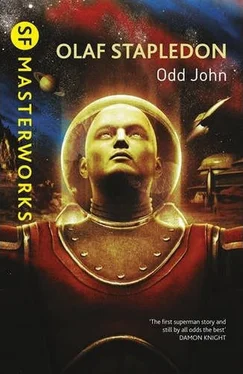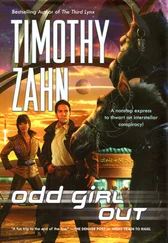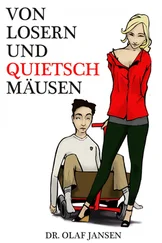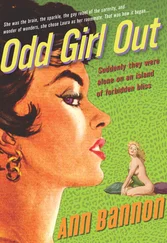Olaf Stapledon - Odd John
Здесь есть возможность читать онлайн «Olaf Stapledon - Odd John» весь текст электронной книги совершенно бесплатно (целиком полную версию без сокращений). В некоторых случаях можно слушать аудио, скачать через торрент в формате fb2 и присутствует краткое содержание. Город: London, Год выпуска: 2012, ISBN: 2012, Издательство: Hachette UK, Жанр: Фантастика и фэнтези, на английском языке. Описание произведения, (предисловие) а так же отзывы посетителей доступны на портале библиотеки ЛибКат.
- Название:Odd John
- Автор:
- Издательство:Hachette UK
- Жанр:
- Год:2012
- Город:London
- ISBN:9780450038570
- Рейтинг книги:5 / 5. Голосов: 1
-
Избранное:Добавить в избранное
- Отзывы:
-
Ваша оценка:
- 100
- 1
- 2
- 3
- 4
- 5
Odd John: краткое содержание, описание и аннотация
Предлагаем к чтению аннотацию, описание, краткое содержание или предисловие (зависит от того, что написал сам автор книги «Odd John»). Если вы не нашли необходимую информацию о книге — напишите в комментариях, мы постараемся отыскать её.
Odd John — читать онлайн бесплатно полную книгу (весь текст) целиком
Ниже представлен текст книги, разбитый по страницам. Система сохранения места последней прочитанной страницы, позволяет с удобством читать онлайн бесплатно книгу «Odd John», без необходимости каждый раз заново искать на чём Вы остановились. Поставьте закладку, и сможете в любой момент перейти на страницу, на которой закончили чтение.
Интервал:
Закладка:
Glancing at the small electric clock, let into the wall, John said. “There’ll be a meal in a few minutes. That long building is the feeding-house, with the kitchen alongside of it.” He pointed to a low wooden building among the trees. In front of it was a terrace, and on the terrace, tables.
I shall not forget my first meal on the island. I was seated between John and Lo. The table was crowded with unfamiliar eatables, especially tropical and sub-tropical fruits, fish, and a queer sort of bread, all served in vessels made of wood or of shell. Marianne and the two Chinese girls seemed responsible for the meal, for they kept disappearing into the kitchen to produce new dishes.
Looking at the slight naked figures of various shades from Ng-Gunko’s nigger-brown to Sigrid’s rich cream, all seated round the table and munching with the heartiness of a school treat, I felt that I had strayed into an island of goblins. This was in the main an effect of the two rows of large heads and eyes like field-glass lenses, but was accentuated by the disproportionately large hands which were busy with the food. The islanders were certainly a collection of young freaks, but one or two of them were freakish even in relation to the standards of the group itself. There was Jelli with her hammer-head and hare-lip, Ng-Gunko with his red wool and discrepant eyes, Tsomotre, a Tibetan boy, whose head seemed to grow straight out of his shoulders without the intervention of a neck, Hwan Tê, a Chinese youngster, whose hands outclassed all the others in size, and bore, in addition to the normal set of fingers, an extra and very useful thumb.
Since the death of Yang Chung the party comprised eleven youths and boys (including Sambo) and ten girls, of whom the youngest was a little Indian child. Of these twenty-one individuals, three lads and a girl were Tibetan, two youths and two girls were Chinese, two girls were Indian. All the others were of European origin, except Washingtonia Jong. I was to discover that of the Asiatics the outstanding personalities were Tsomotre, the neckless expert in telepathy, and Shên Kuo, a Chinese youth of John’s age who specialized in direct research into the past. This gentle and rather frail young man, who, I noticed, was given specially prepared food, was said to be in some ways the most “awakened” member of the colony. John once said half seriously, “Shên Kuo is a reincarnation of Adlan.”
On my first afternoon John took me for a tour of inspection round the island. We went first to the power-house, a stone building on the quay. Outside the door the infant Sambo lay upon a mat, kicking with his crooked black legs. Curiously, he seemed to have changed less than the other supernormals. His legs were still too weak to support him. As we passed, he piped to John, “Hi! What about a bit of a talk? I’ve got a problem.” John replied without checking his progress, “Sorry, too busy just now.” Within we found Ng-Gunko, his back shining with sweat, shovelling sand, or rather dried ooze, into a sort of furnace. “Convenient,” I said, laughing, “to be able to burn mud.” Ng-Gunko paused, grinning, and wiping his brow with the back of his hand.
John explained. “The element that we use now is particularly easy to disintegrate by the psychical technique, but also it occurs only in very small quantities. Of course, if we disintegrated all this mass of stuff and let it go off with a bang, the whole island would be blown up. But only about a millionth part of the raw material is the element we want. The furnace merely frees the desired atoms as a sort of ash, which has to be refined out of the other ash, and stored in that hermetically sealed container.”
He now led the way into another room, and pointed to a much smaller and very solid-looking bit of mechanism. “That,” he said, “is where the real business is done. Every now and then Ng-Gunko puts a pinch of the stuff on a sticky wafer, pops it in there, and ‘hypnotizes’ it. That makes it go invisible and intangible and materially non-existent, at least for ordinary purposes; because, you see, it has gone to sleep and can’t take any effect on anything. Well, either Ng-Gunko wakes it up again at once, and it sends the hell of a blast of power into that engine, to drive the dynamos; or it is taken away for use on the Skid , or elsewhere.”
We passed into a room full of machinery, a mass of cylinders, rods, wheels, tubes, dials. Beyond that were three big dynamos, and beyond them the plant for distilling sea-water.
We then moved over to the laboratory, a rambling collection of wooden buildings rather apart from the settlement. There we found Lo and Hwan Tê working with microscopes. Lo explained that they were “trying to spot a bug that’s got at the maize plantation.” The place was much like any ordinary lab., crowded with jars, test-tubes, retorts and so on. It evidently served for work on both the physical and the biological sciences, but the biological was preponderant. On one side of the room was an immense cupboard, or rather series of small cupboards. These, I learned, were incubators for use in embryological work. I was to hear more of this later.
The library and meeting-room was a stone erection which had evidently been built to last, and to delight the eye. It was quite a small building of one storey, and I was not surprised to learn that most of the books were still housed in wooden sheds. But the shelves of the library itself were already filled with all the most prized volumes. When we entered the room, we found Jelli, Shên Kuo and Shahîn surrounded by piles of books. The smaller half of the building was occupied by the meeting-room, which was panelled with strange woods and decorated with much-stylized carvings. Of these works, some repelled and intrigued me, others moved me not at all. The former, John said, had been done by Kargis, the latter by Jelli. It was plain that Jelli’s creations had a significance unperceived by me, for John was evidently held by them, and to my surprise we found Lankor, the Tibetan girl, standing motionless before one of them, her lips moving. When he saw her, John said, lowering his voice, “She’s far away, but we mustn’t risk disturbing her.”
After leaving the library we walked through a big kitchen garden, where several of the young people were at work, and thence up the valley between the island’s two mountains. Here we passed through fields of maize and groves of baby orange-trees and shaddock, which, it was hoped, would some day bear a rich crop. The vegetation of the island ranged from tropical to subtropical and even temperate. The extinct native pioneers had introduced much valuable tropical vegetation, such as the ubiquitous and invaluable coco-palm, and also bread-fruit, mango, and guava. Owing to the saltness of the air none but the coco-palm had really prospered until the supernormals had invented a spray to counteract the salt. When we had climbed out of the valley by a little track amongst a tangle of aromiiatie bushes, we presently emerged upon a tract of bare hillside consisting of rock, covered in places with dried sub-oceanic ooze. Here and there a wind-borne seed had alighted and prospered, and founded a little colony of vegetation. On a shoulder of the mountain John pointed out “the island’s main attraction for sightseers.” It was the keel and broken ribs of a wooden vessel evidently wrecked and sunk before the island rose from the bottom of the Pacific. Within it were bits of crockery and a human skull.
On the top of the little mountain we came upon the unfinished observatory. Its walls had risen only a foot from the ground, yet the whole place had a deserted look. To my question John replied, “When we found Out how short a time lay before us, we abandoned all work of that kind, and concentrated on undertakings that we could bring to some sort of conclusion. I’ll tell you more about them, some day.”
Читать дальшеИнтервал:
Закладка:
Похожие книги на «Odd John»
Представляем Вашему вниманию похожие книги на «Odd John» списком для выбора. Мы отобрали схожую по названию и смыслу литературу в надежде предоставить читателям больше вариантов отыскать новые, интересные, ещё непрочитанные произведения.
Обсуждение, отзывы о книге «Odd John» и просто собственные мнения читателей. Оставьте ваши комментарии, напишите, что Вы думаете о произведении, его смысле или главных героях. Укажите что конкретно понравилось, а что нет, и почему Вы так считаете.












